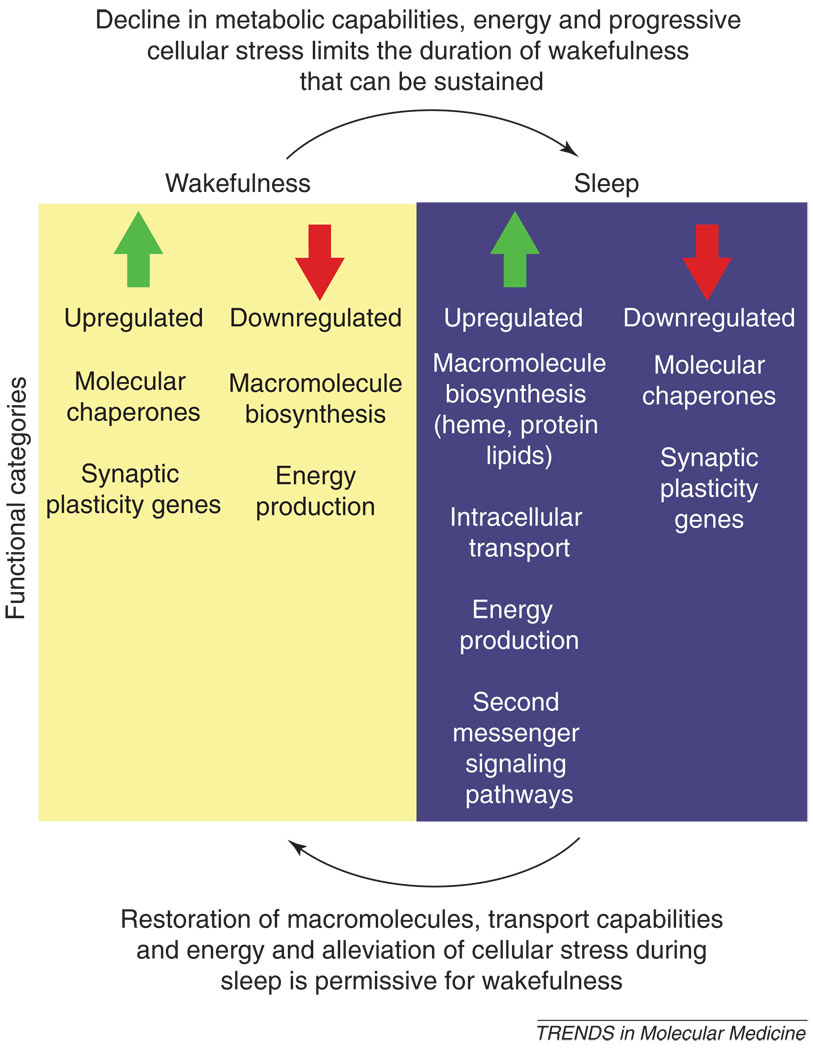Figure 2.
During wakefulness, upregulation of genes involved in synaptic plasticity occurs and, with extended wakefulness, upregulation of molecular chaperones follows. If wakefulness is extended, a major mechanism promoting sleep might be the progressive decline in processes that promote wakefulness, thereby enabling sleep to occur. During sleep, there is a downregulation of genes involved in synaptic plasticity and those encoding molecular chaperones. Macromolecular biosynthesis during sleep is evidenced by the elevated expression of genes involved in the synthesis of lipids, protein, heme and other molecules. There is also increased expression of genes involved in intracellular transport, second-messenger signaling pathways and some genes involved in energy regulation.

